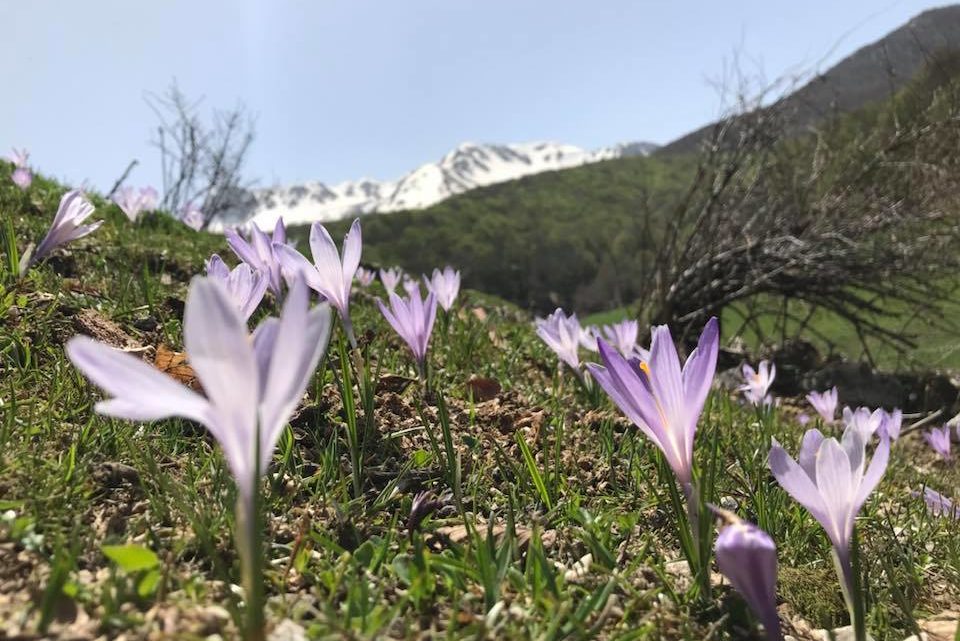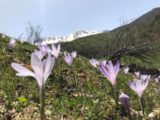
The legend of the Goddess Maja
Febbraio 12, 2024

For the people of Abruzzo the Majella is the Mother, the symbol of the fertility of the land.
In Latin mythology, Maja is considered the divinity of the growing strength and budding of nature and, together with Vulcan, represented fertility. With the latter he had a son, a giant.
The legend
Legend has it that Maja fled from Phrygia (a historical region of central Anatolia) to rescue her son Hermes, who was wounded during a violent battle.
They crossed the Mediterranean Sea on a makeshift raft to arrive at the port of a small town called Orton, present-day Ortona in the province of Chieti, to look for a medical herb to treat Hermes’ wounds which only grew on the slopes. of the Gran Sasso mountain range.
Maja, fearing that she was still being chased by her enemies, took refuge in one of the many caves on the Gran Sasso and dedicated herself exclusively to caring for her son.
The desperate search
He spent all his time searching for this medical herb so powerful that it could cure all the young man’s ailments, but the harsh winter and above all the heavy snow made it impossible to find this miraculous plant, and unfortunately after some time Hermes died, leaving her alone. in infinite despair.
It is said that this miraculous plant could be the root of the gentian lutea.

With the help of some shepherds, the young man’s body was buried on the Gran Sasso, which magically took on the appearance of a sleeping giant

After the death of her son Hermes, the beautiful goddess Maja no longer had peace, in desperation she searched nearby for a place where she could watch over the tomb of her deceased son, one day she arrived on a majestic mountain in front of the Gran Sasso and there she met her death.
The mountain thus took the shape of a woman petrified by pain, lying on herself with her gaze fixed on the sea to protect her son’s tomb from the arrival of any enemies. In his honor that mountain took the name of Majella, the Mother mountain.
It is said that even today the shepherds grazing on windy days hear his cries. When the wind is channeled into the woods and along the valleys it reproduces the lament of a crying Mother mourning her dead son.








